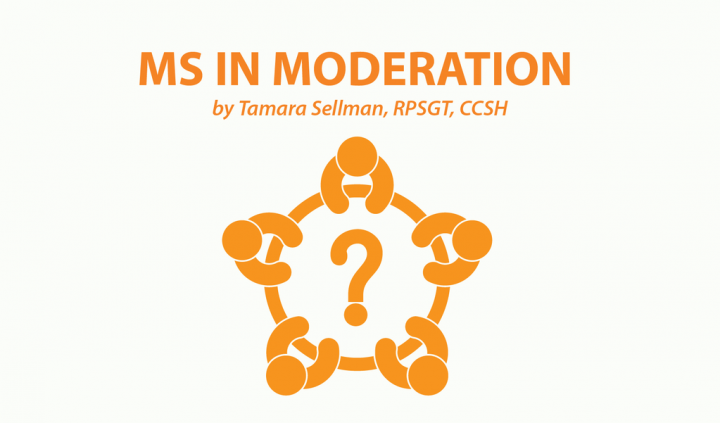Need to Know: What Participating in MS Research Entails
Written by |

Editor’s note: “Need to Know” is a series inspired by common forum questions and comments from readers. Have a comment or question about MS? Visit our forum. This week’s question is inspired by the forum post “I’ve Been Spoiled by My Clinical Trial,” published March 5. Share your concerns, questions, or experiences in the comments below or at the original forum entry.
Has anyone ever asked you to participate in a clinical trial?
Following my diagnosis in 2013, my neurologist asked me. At that time, she was a researcher at a nearby institute focused on MS. Since then, she’s become chief of staff, so I see her less frequently. Still, her neurology partner prompts me at every office visit to participate.
But it’s a scary prospect with lots of unknowns regarding participation. Today, we’ll take a closer look at what it means to take part in MS research.
Types of research
The U.S. Food and Drug Administration (FDA) describes several types of clinical research conducted so doctors, patients, and researchers can better understand:
- disease detection
- diagnostics
- treatments
- patterns of disease in groups of people
- subject quality of life
- genetic links
- disease prevention
Also, clinical research varies in how you participate:
- Inpatient: Participants stay in a hospital or research center.
- Outpatient: Participants don’t visit a facility.
Clinical (interventional) trials
Participants may receive specific interventions, such as a drug, medical device, list of procedures to follow, or behavior modification protocol, such as a diet.
You might be given a placebo (drugs with no actual ingredients). You may also participate in research that compares two different kinds of interventions.
Or, no intervention may be offered. Sometimes you’re screened instead or asked to give blood or share family history. Not every test incorporates drugs or devices.
In some cases, you may participate as a “control,” an equally important element of research.
People without MS may also participate as “healthy volunteers.”
Clinical trials have four phases:
- Phase 1 involves testing a small group of people for the first time to evaluate safety and side effects.
- Phase 2 tests a larger group of people similarly, to repeat safety trials.
- Phase 3 means the intervention has proven safe, so researchers broaden their research to very large populations.
- Phase 4 occurs after passing Phase 3, when researchers can finally apply for FDA approval. FDA-approved interventions are then prescribed and marketed. Phase 4 tests the intervention again to monitor safety concerns, benefits, and best practices.
Observational studies
Like clinical trials, these involve potential interventions or procedures, but only as part of one’s routine medical care.
Observational studies strive to capture a snapshot of participant experiences to advance their understanding of how interventions work (or don’t work).
The scientists studying participants for observation don’t assign them anything new, such as a drug or a protocol, they simply observe and record.
So, you may take Tecfidera (dimethyl fumarate) for your MS, and an observational study of patients with MS using Tecfidera simply collects your data. Your treatment won’t change in any way.
Types of observational studies include:
- Cross-sectional. Researchers collect data recorded previously from a large population at a single point in time to uncover links between risks, causes, and outcomes.
- Cohort: Researchers compare groups who share similar characteristics and undergo similar treatments to test outcomes.
- Case-control: Researchers recruit based on disease status (for example, only those with SPMS) to study against other groups (people with RRMS) to isolate similarities and differences.
- Case reports: Researchers describe specific individual cases to tease out telling details recorded under observation.
- Longitudinal: Researchers monitor a large group of participants for repeatable observations of specific variables over a long period.
Why participate?
Participating in research can seem like a scary prospect. But if you can tease out some research details from doctors or peers asking you to participate, you should be able to contribute at your comfort level.
The National Multiple Sclerosis Society says it best: “If you have ever taken a medication or received rehabilitative physical therapy, then you have experienced the benefits of clinical research. … There is an urgent need for people with multiple sclerosis (MS) who are willing to volunteer in clinical trials testing MS therapies. …Without the help of people with MS, it would be impossible to develop new and better therapies.”
They also note that studies are monitored for safety and the protection of patients’ rights.
For my part, I’ve contributed to multiple MS databases and replied to many questionnaires, but I might do more in the future. Will you?
Locate clinical trials for MS
The following sites include opportunities for participants:
- National Multiple Sclerosis Society
- U.S. National Library of Medicine (active trial recruits in the U.S. as of June 2)
- CenterWatch
Note: COVID-19 may affect current study recruitment and engagement, and coordination could be delayed.
***
Note: Multiple Sclerosis News Today is strictly a news and information website about the disease. It does not provide medical advice, diagnosis, or treatment. This content is not intended to be a substitute for professional medical advice, diagnosis, or treatment. Always seek the advice of your physician or other qualified health provider with any questions you may have regarding a medical condition. Never disregard professional medical advice or delay in seeking it because of something you have read on this website. The opinions expressed in this column are not those of Multiple Sclerosis News Today or its parent company, Bionews Services, and are intended to spark discussion about issues pertaining to multiple sclerosis.



Leave a comment
Fill in the required fields to post. Your email address will not be published.